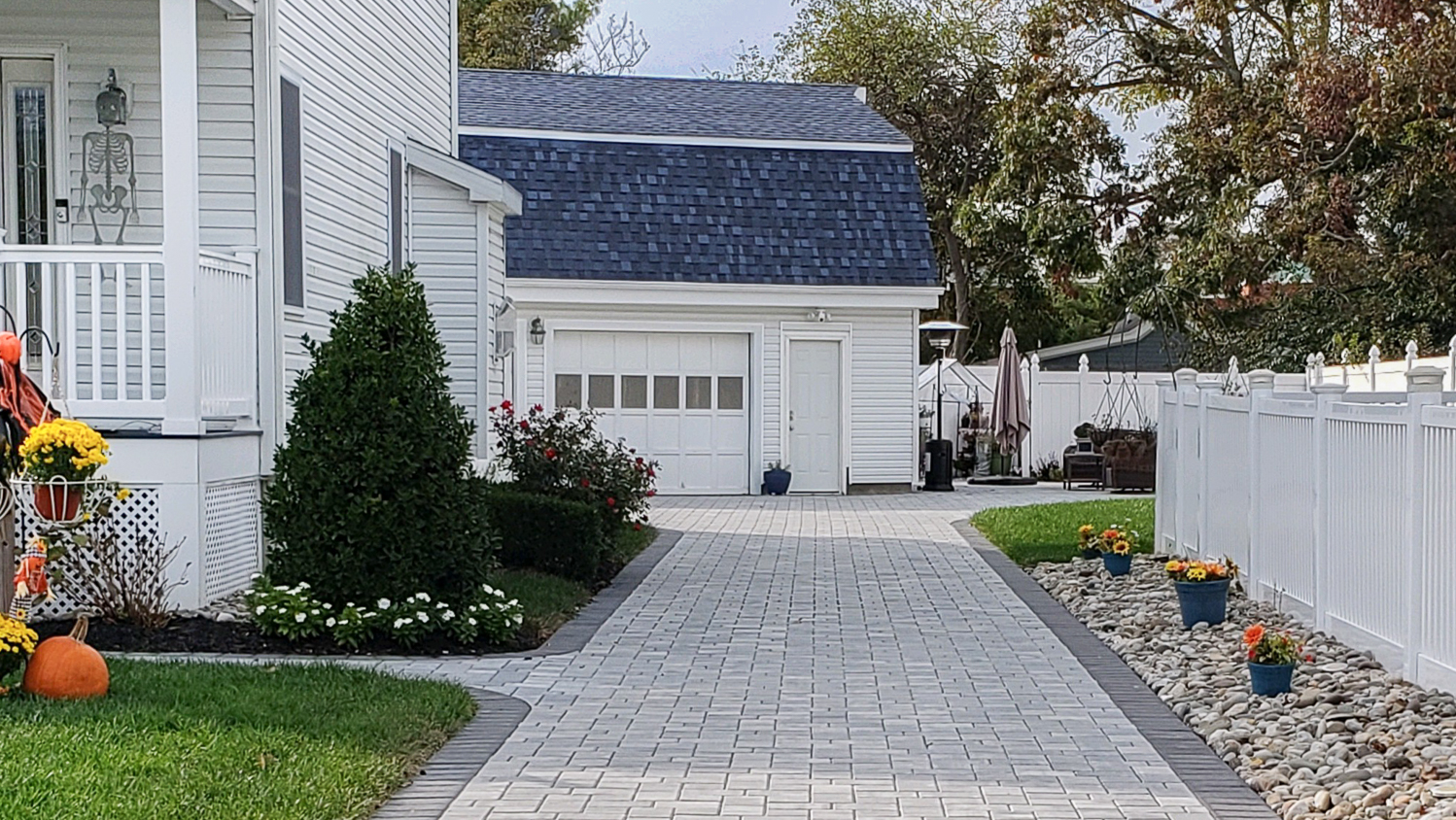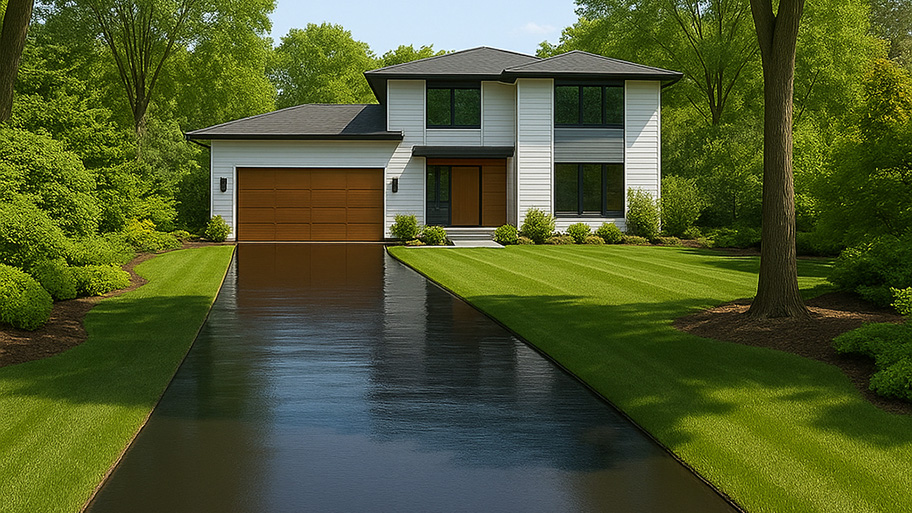
Discover the average paver driveway cost, including price ranges, key cost factors, and tips to help you budget for your driveway project.
Replace your damaged and worn-out culvert with these five tips
Without proper drainage from a culvert, water can build up at the end of your driveway. While the small murky puddles might be fun for the kids, they can be a sign of other problems. If the materials used to build the culvert were not installed correctly, it might not be strong enough to withstand the weight of your car, causing it to buckle or crack. Cold temperatures can also cause bulging. If your driveway has seen better days, use these five tips to replace your driveway culvert.
When taking on this project, expect questions only a pro can answer. With our network of local pros, you'll get the job done and your questions answered—without the hassle and stress of doing it yourself.
Generally, a rusted-out or damaged culvert is not worth repairing. It will take less time to replace the culvert, and it will likely last longer than a repair. It will cost more to hire a professional, but a pro will have the equipment and expertise needed to ensure the job is done right with minimal disruption to the rest of your property. Hiring a pro will also save you money renting or buying equipment and the time it takes to learn to use it (although we admit we’ve always wanted to learn how to drive a backhoe).
Although you are replacing your existing driveway culvert rather than starting from scratch, you still want to be sure it’s done right so it never has to be done again. Depending on the size of the culvert and type of pipe, you can replace your driveway culvert yourself or hire a professional.
A larger project may require bringing in some heavy equipment. So, if you’re not comfortable operating a backhoe or skid-steer loader, you may want to seek out the expertise of a professional. However, if you DIY, you will likely need to purchase or rent a few materials, including a culvert pipe, stakes, a measuring tape, a concrete saw, and a trenching shovel or two (for a friend).
For professional installation of your culvert, you can expect to pay between $1,000 and $9,000, with an average cost of about $4,500, depending on the length and type of pipe and your driveway material. This price may or may not include any materials like stones, rocks, sod, or other materials to line the drainage ditch, but usually will include resurfacing the area of your driveway that sat on top.

Some cities maintain driveway culverts if located on the city's right-of-way to preserve the structure of roads, streets, and public property. Generally, the homeowner will need to complete an application before beginning the project. Only insured and bonded contractors may perform work in the right-of-way.
If you’re not on a right-of-way and doing the work yourself, you will need to obtain any permits required by your city. You’ll also want to check with your city’s building code administrator to see if you must follow any regulations regarding the type of pipe and diameter.
You will also be required to contact your utility company to find out the location of underground utility lines before digging.
Replacing a driveway culvert is a big job. Here are some basic (and not-so-basic) tools you or your pro need to replace your driveway culvert.
Nylon string: $6
Stakes: $8 (bundle of six)
Tape measure: $15 (25-foot)
Carpenter’s level: $20 to $40
3/4-inch to 2-inch gravel mix: $25 to $35
Vibrating compactor: $500 to $1,500 to buy, $83 per day to rent
Skid-steer loader: $200 per day to rent
Backhoe attachment: $40 per day to rent
You’ll also need the replacement culvert pipe. Choose a pipe with a large enough diameter—typically 10 or 12 inches, occasionally smaller or larger—to accommodate the water.
Culvert pipes are usually aluminum, galvanized steel, plastic, or concrete. Galvanized steel is ideal for areas with high traffic because of its strength and durability, but it’s prone to rusting, which can create weak spots. While aluminum and plastic will not rust, neither is as strong as steel. Plastic culvert pipes do have the added benefit of being lightweight and easier to install, making them better suited for low-traffic areas. Concrete pipes are durable and ideal for high traffic, but the heavy material requires more manpower. All four can be cut to size, but concrete pipes require extra machinery and expertise.
Aluminum or galvanized steel, 24 x 20 foot length: about $800
Plastic, 24 x 20 foot length: $700
From average costs to expert advice, get all the answers you need to get your job done.

Discover the average paver driveway cost, including price ranges, key cost factors, and tips to help you budget for your driveway project.

Discover the average cobblestone driveway cost based on factors like the size and scope. Keep reading to budget for a cobblestone driveway.

Don’t knock it until you try it. A heated driveway can save you a lot of manual labor in colder months. Here’s a breakdown of the cost of a heated driveway.
Understand the pros and cons of heated driveways, their value and cost factors, and determine whether they are the right investment for your home. Heat driveways are a great investment for those experiencing extreme winters and would prefer a

Choosing the right asphalt is key to a long-lasting surface. Find out which mix works best for roads, driveways, and heavy-traffic areas.

Learn to remove stubborn oil stains from asphalt driveway using simple household items like baking soda, powdered detergent, or floor degreaser.